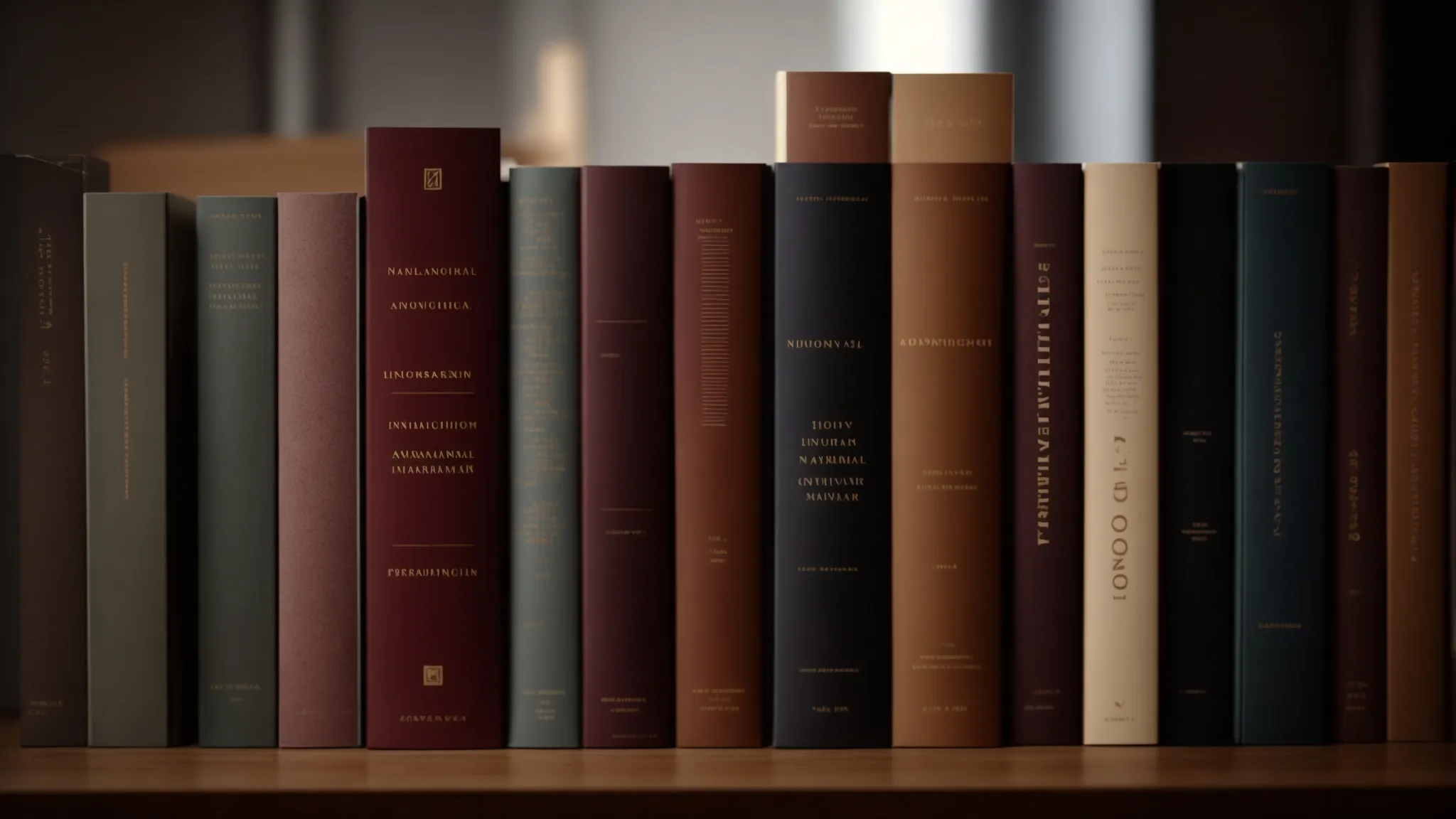Harnessing Intuition for Smarter Decision Making
Harnessing your intuition can lead to smarter decision-making by tapping into the powerful resources of your consciousness. “Thinking Into Results” emphasizes the significance of understanding the mind‘s innate ability to process experiences and develop insights that transcend mere logic. Research shows that our biases often cloud judgment, yet intuition can guide you toward clearer, more effective outcomes. Discover how intuition influences your decision-making and the creative processes that drive success. Keep reading to explore practical examples, psychological theories, and actionable exercises that will enhance your intuitive skills.
Key Takeaways
- Intuition significantly influences decision-making across various fields, including dentistry, business, and art
- Balancing instinct with analytical reasoning enhances your overall decision-making effectiveness
- Engaging in mindfulness and self-reflection improves your ability to trust your intuitive responses
- Intuitive insights can reveal opportunities and risks that traditional analytical methods may overlook
- Experimenting with quick decision-making techniques cultivates reliance on your gut feelings
What Is Intuition? 5 Real-Life Examples

Understanding intuition requires an exploration of how it manifests in various fields, shedding light on its significant role in shaping decisions. In dentistry, for instance, a practitioner’s instinct often guides them through complex procedures, leveraging awareness built from experience and memory. In business, leaders may rely on intuitive judgment to identify opportunities that data alone might not reveal. The fascinating concept of the Stag Hunt Game illustrates how behavior driven by intuition can affect teamwork and strategic choices. Stockbrokers frequently trust their gut feelings when assessing market trends, showcasing the interplay of instinct and analytical reasoning. Finally, in the realm of art, creators often depend on their intuitive sense to evoke emotions, demonstrating how this innate understanding can lead to impactful work. Each example underscores the dynamic relationship between thought processes and the instincts we develop through experience.
1. Dentistry
In dentistry, your instinct Thinking Into Results plays a vital role in effective decision making, especially when faced with complex procedures. The blend of logic and emotional intelligence allows you to assess patient needs quickly, guiding your choices toward sustainable outcomes. By trusting your intuition, you can enhance your practice and ensure that each decision aligns with both patient care and professional ethics.
2. Business
In the realm of business, intuition serves as a powerful tool to enhance decision-making processes. Your ability to tap into insight can identify opportunities and risks that analytical methods or mathematics may overlook, allowing you to navigate complex market landscapes. By harnessing pattern recognition, you strengthen your capacity to make choices that align with your strategic goals, mitigating the risk of prejudice clouding your judgment.
- Harness your intuitive insights to gain deeper understanding of market trends.
- Utilize pattern recognition to streamline decision-making processes.
- Balance reason with instinct to optimize strategic planning.
3. The Stag Hunt Game
The Stag Hunt Game illustrates the delicate interplay between intuition and decision-making in a group setting. This theory emphasizes the importance of morale and trust within a team, as leaders must evaluate the potential outcomes while navigating the fear of individual sacrifice for collective gain. Understanding this dynamic can significantly enhance your leadership approach, enabling you to foster collaboration and encourage decisive actions in pursuit of shared goals.
4. Stockbrokers
For stockbrokers, intuition is woven into the fabric of their daily decision-making. Your ability to combine rationality and experiential learning transforms your perception of market trends, enabling you to act swiftly in response to fluctuating conditions. The philosophy behind trusting your instincts emphasizes not just a reliance on analytical intelligence but also an understanding of the unquantifiable elements that influence market sentiments.
- Intuition plays a crucial role in navigating market risks.
- Effective stockbrokers integrate rational thinking with instinctive insights.
- An intuitive approach fosters a deeper understanding of investor behavior.
5. Art
In the realm of art, your subconscious plays a pivotal role in decision-making, often guiding you towards the creation of pieces that resonate deeply with viewers. This connection between emotion and ethics is crucial; as seen through the lens of Daniel Kahneman‘s work, the justification for artistic choices often stems from a balance of thoughtful consideration and instinctual response. By trusting your intuitive sense, you not only evoke genuine feelings but also align your creations with a sense of moral integrity, enhancing their impact and significance.
Now that you’ve explored the fascinating realm of intuition through real-life examples, let’s dive deeper into the psychology behind this powerful force. Understanding how intuition works will unlock new insights into your decision-making processes and personal growth.
How Does Intuition Work? Psychology Theories

Understanding how intuition works involves delving into the psychological theories that guide your decision-making. Research suggests that intuition arises from your ability to make quick inferences based on accumulated knowledge and past experiences. This mental process allows you to assess risk effectively, often leading to decisions that feel instinctively correct.
Your confidence in intuitive judgments stems from the brain’s capacity to recognize patterns. As you encounter various situations, your mind builds a library of experiences that serve as a foundation for future decisions. This internal database enables you to draw insightful conclusions, even under uncertain circumstances, providing you with a unique advantage when navigating challenges.
Furthermore, the interplay between intuition and rational thought highlights the dual nature of decision-making. While intuition may guide your immediate responses, it’s essential to balance it with analytical reasoning to ensure well-rounded conclusions. By blending both approaches, you can improve your decision-making process, enhancing your ability to navigate complex environments with assurance.
Understanding how intuition functions opens the door to a deeper conversation about its significance in our lives. Let’s dive into why intuition matters and how it can influence your decision-making process.
Is Intuition Important?

Intuition plays a pivotal role in your decision-making, especially when you need to assess risks quickly. By tapping into your instinctive responses, you can enhance your creativity and the ability to navigate complex situations. Evidence suggests that experts often rely on their intuitive judgments to make smarter choices in various fields.
The integration of intuition in risk assessment allows you to weigh potential outcomes effectively. You position yourself to recognize subtle cues and patterns that might otherwise go unnoticed. This heightened awareness helps you to act decisively, particularly in circumstances laden with uncertainty:
- Intuition enhances creativity in problem-solving.
- Experts leverage intuition to make informed decisions.
- Effective risk assessment combines intuitive insights with analytical data.
Ultimately, embracing your intuitive abilities fortifies your confidence in decision-making. As you hone this skill, you’re better equipped to manage risks while remaining open to innovative solutions. A balanced approach empowers you to approach challenges with greater assurance and agility.
Intuition often guides you toward decisions that logic might overlook, igniting curiosity about its role in your life. But what happens when you weigh instinct, logic, and intuition side by side?
Instinct, Logic, or Intuition?

Understanding the dynamics of decision-making involves recognizing the roles of instinct, logic, and intuition. Renowned thought leaders like Katrine Kjaer emphasize the significance of intuition as a powerful cognitive tool, capable of navigating the complexities of choices amid the noise of culture and statistics. By sharpening your attention towards this innate ability, you can unlock insights that formal logic and reasoning might overlook. This approach aligns with René Descartes‘ philosophical explorations, where the balance of emotion and reason contributes to deeper understanding and effective decision-making. Embracing this multifaceted perspective empowers you to make smarter, more agile choices.
The Power of Intuition – Katrine Kjaer
Katrine Kjaer emphasizes the profound power of intuition as a vital cognitive tool that integrates the unconscious mind, enabling you to make swift decisions influenced by your feelings and experiences. The human brain processes information rapidly, allowing empathy to enhance your understanding of nuanced situations and fostering a deeper connection to the choices at hand. Harnessing this instinctual intelligence can significantly refine your cognitive abilities, aiding in the navigation of complex scenarios with confidence and clarity:
- Intuition draws upon your unconscious mind to inform decisions.
- Empathy supports a more profound connection in understanding choices.
- Leveraging intuition can lead to more effective cognitive strategies.
In the intricate dance of decision-making, instinct and logic often collide, leaving you at a crossroads. Choosing the right path requires not just thought, but a deep dive into the powerful role of intuition in shaping your choices.
Its Role in Decision Making

In the realm of decision-making, leveraging intuition allows you to move beyond mere analytics. While data provides a foundation, your gut feelings can act as a guiding force, especially in uncertain situations. This instinct often surfaces from past experiences, allowing you to formulate a clear argument for your choices.
Your ability to blend intuition with analytical insights creates a more holistic decision-making framework. Engaging in experiments can further refine your intuitive skills, providing real-time feedback on your choices. As you practice this balance, you strengthen your confidence to tackle increasingly complex scenarios.
Ultimately, recognizing the interplay of intuition and logic enhances your decision-making proficiency. As you cultivate this skill, you find that your instincts can align seamlessly with analytical data, allowing for more agile and informed choices. This process fosters a deeper understanding of the factors influencing your decisions:
As you navigate the complexities of decision making, a hidden force emerges—one that fuels your creativity. Discover how intuition transforms your thoughts into innovative solutions, bridging the gap between insight and imagination.
The Link Between Intuition and Creativity

Your intuition serves as a key driver behind the creative process, enhancing your ability to generate innovative ideas. By tapping into your instinctive responses, you open yourself up to possibilities that analytical thinking alone may not uncover.
This connection creates a fertile ground where unique solutions flourish. Trusting your gut feelings enables you to navigate complex problems with fluidity, often leading you to results that resonate on both emotional and intellectual levels.
As you nurture this link between intuition and creativity, you position yourself to make informed decisions that go beyond conventional approaches. Embracing this symbiosis allows you to become more agile in your thinking and responsive to emerging challenges:
- Intuition enhances your creative thinking.
- It opens pathways to innovative solutions.
- Trusting your instincts leads to more resonant outcomes.
Intuition fuels creativity in remarkable ways, sparking innovative ideas that can change lives. To deepen your understanding, here are seven enlightening books that delve into this transformative connection.
7 Books on the Topic

Exploring the topic of intuition can deepen your understanding and sharpen your decision-making skills. Several insightful books delve into how intuition operates and its vital role in various fields. These resources provide not only foundational knowledge but also practical strategies to harness your intuitive capabilities effectively.
Consider reading titles that address the intersection of intuition, logic, and creativity. These books often include real-world examples and actionable advice, allowing you to integrate intuition into your decision-making processes. By engaging with these texts, you will discover how to refine your instincts and utilize them alongside analytical reasoning.
Here is a selection of books that will enrich your perspective on intuition and its applications:
- “Blink: The Power of Thinking Without Thinking” by Malcolm Gladwell
- “The Gift of Fear” by Gavin de Becker
- “Thinking, Fast and Slow” by Daniel Kahneman
- “Intuition: The Hidden Force That Drives Your Life” by John K. McKee
- “The Intuitive Parent” by swami Rachael & Daniel J. Levitin
- “Presenting the Past: The Importance of Intuition in Decision Making” by Steve Karr
- “The Art of Intuition” by Christine Lajewski
Having delved into seven remarkable books, it’s time to shift gears and take action. Prepare to uncover your hidden strengths with these 17 engaging exercises designed to challenge and inspire you.
17 Exercises to Discover & Unlock Strengths

To harness your intuition effectively, begin with self-reflection exercises that help you identify personal strengths and preferences. Regularly journal your experiences and feelings to observe patterns over time, which can provide clarity on how your instincts guide your choices. This practice enhances your self-awareness and encourages a deeper understanding of your intuitive responses.
Engaging in mindfulness and meditation can also significantly boost your intuitive skills. By quieting your mind, you create space for your subconscious to reveal valuable insights and impressions. Regular practice allows you to tune in to your inner voice, making it easier to recognize and trust your instincts when faced with important decisions:
Lastly, consider experimentation with decision-making techniques that challenge your analytical thinking. Engage in activities that require you to act quickly without overanalyzing, such as intuitive games or spontaneous creative projects. This practice fosters reliance on your gut feelings and promotes a natural flow of intuition in your everyday life.



